Western Cultural and Social Impact: Russia’s Culture Wars
Explore how 1990s Russia was reshaped by Western culture—from Hollywood films, pop music, and evangelical missionaries to malls, fast food, and even Caesar salads—sparking both lasting lifestyle shifts and fierce backlash against foreign influence.
About
One of the lesser studied or discussed aspects of the 1990s was the deep cultural impact of Western culture and cultural values on Russia, not only in the cosmopolitan, English friendly major cities but deep into the provinces. The reaction against what was seen as an intrusion of foreign values on traditional Russian culture and values is deserving of a great deal more attention. This ranges from the dominance of American movies and TV shows, Mexican and Brazilian soap opera TV shows, American music, American values regarding treatment of women and feminism, missionaries from Protestant evangelical churches, various religious cults like the followers of Reverend Moon and Hari Krishnas, active adoption of Russian children, and active mail order bride services for Russian women looking for foreign husbands.
While many of the negative social trends of this era were the result of faults and failures of Russian internal structures, they became associated in the minds of Russians with “reform” and “capitalism.” All of these influences impacted hugely on Russian society at a time when the security services were in disarray and crime was rampant. For business the 1990s was a period when each business had to at least consider whether it needed “krysha,” translated as “roof,” to protect themselves from criminals and sometimes from rival government agencies. It was a period in which many ordinary Russians desperately desired order and personal security.
Simultaneously the way Russians now live their lives was also transformed during this period in ways that lead back to Western business models and practices that survive even today under Russian ownership. Russians keep in touch with friends and relatives and interact with government services through mobile phones. Russians buy and sell apartments. They shop in malls and big box stores, although these forms of retail shopping channels are currently threatened by sanctions that have removed Western brands from Russia. They listen to music on FM radio and watch movies at multiplex movie theaters. They have a range of restaurants from fine dining to fast food from which to choose. Russians are top-notch professionals in real estate development, advertising, accounting, and law. In all these areas, pioneering American and other foreign entrepreneurs created new companies in Russia that seeded or inspired Russian owned and operated competitors. The post-Soviet generation has grown up with these changes and have a lifestyle or aspirations for a lifestyle that was shaped by these new private service sector industries.
Apart from the big structural changes in the new private sector, there are any number of smaller changes in Russian life introduced by Americans and foreigners, including the introduction of the ubiquitous Caesar salad and improved Siberian corn and soybean seeds. Topics covered in this section are growth and later suppression of independent TV and TV news, focused on Internews; Western style entertainment without politics, including CTC TV, Radio Maximum, Kino Mir and multiplexes; police training re domestic violence, Project Harmony; krysha, Starlight Diner; agriculture; print media, Moscow News and Cosmopolitan.
While many of the negative social trends of this era were the result of faults and failures of Russian internal structures, they became associated in the minds of Russians with “reform” and “capitalism.” All of these influences impacted hugely on Russian society at a time when the security services were in disarray and crime was rampant. For business the 1990s was a period when each business had to at least consider whether it needed “krysha,” translated as “roof,” to protect themselves from criminals and sometimes from rival government agencies. It was a period in which many ordinary Russians desperately desired order and personal security.
Simultaneously the way Russians now live their lives was also transformed during this period in ways that lead back to Western business models and practices that survive even today under Russian ownership. Russians keep in touch with friends and relatives and interact with government services through mobile phones. Russians buy and sell apartments. They shop in malls and big box stores, although these forms of retail shopping channels are currently threatened by sanctions that have removed Western brands from Russia. They listen to music on FM radio and watch movies at multiplex movie theaters. They have a range of restaurants from fine dining to fast food from which to choose. Russians are top-notch professionals in real estate development, advertising, accounting, and law. In all these areas, pioneering American and other foreign entrepreneurs created new companies in Russia that seeded or inspired Russian owned and operated competitors. The post-Soviet generation has grown up with these changes and have a lifestyle or aspirations for a lifestyle that was shaped by these new private service sector industries.
Apart from the big structural changes in the new private sector, there are any number of smaller changes in Russian life introduced by Americans and foreigners, including the introduction of the ubiquitous Caesar salad and improved Siberian corn and soybean seeds. Topics covered in this section are growth and later suppression of independent TV and TV news, focused on Internews; Western style entertainment without politics, including CTC TV, Radio Maximum, Kino Mir and multiplexes; police training re domestic violence, Project Harmony; krysha, Starlight Diner; agriculture; print media, Moscow News and Cosmopolitan.
THE INTERVIEWS

Subscribe to our newsletter!
You will receive our monthly newsletter with the most relevant Russia-related research news
Contact US
+1 (202) 9946340
russiaprogram@gwu.edu
russiaprogram@gwu.edu
INSTITUTE FOR EUROPEAN, RUSSIAN, AND EURASIAN STUDIES
1957 E St., NW, Suite 412,
Washington, DC 20052


